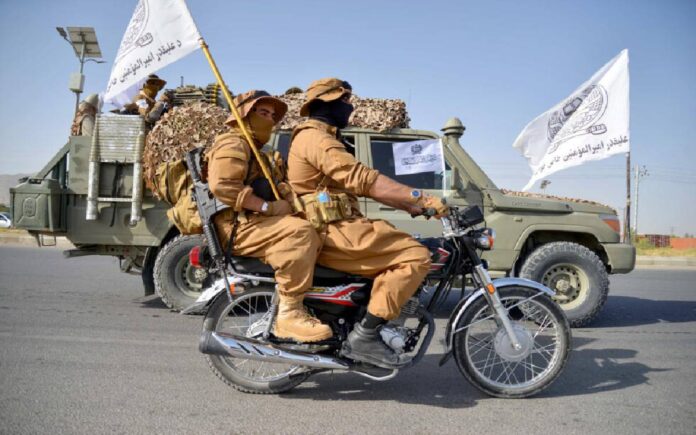Kabul: In a stark reminder of the Taliban’s uncompromising interpretation of Islamic law, four men were publicly executed across three provinces in Afghanistan on Friday—the highest number of executions carried out in a single day since the group returned to power in 2021. The move underscores the Taliban’s intensified enforcement of “eye for an eye” justice, known as qisas, amid growing global condemnation.
According to Afghanistan’s Supreme Court, the executions took place in Badghis, Nimroz, and Farah provinces, bringing the total number of public executions since the Taliban’s return to power to 10, based on AFP’s tally. Public notices had reportedly invited citizens to witness the executions, echoing grim scenes from the Taliban’s first regime between 1996 and 2001, when executions were frequently held in sports stadiums.
Two of the convicted men were executed in Qala-i-Naw, the provincial capital of Badghis. Witnesses described the method as retributive justice carried out by relatives of the victims.
“They (the convicted men) were made to sit and turn their backs to us. Relatives from the victims’ families stood behind and shot them with a gun”, said Mohammad Iqbal Rahimyar, a 48-year-old resident who witnessed the execution.
The Supreme Court stated that the men were sentenced for murder after their cases were “examined very precisely and repeatedly”. Despite being given the option, the victims’ families reportedly declined to offer a pardon.
“If the family of the victim had forgiven the men it would be better, otherwise it’s God’s order, and should be implemented”, Zabihullah, a 35-year-old man outside the stadium, told AFP.
The third execution took place in Zaranj, the capital of Nimroz province, while the fourth occurred in Farah city, located in the western province of Farah.
“It’s good that the Islamic Emirate shows its politics and force. I am very happy with that”, said Javid, a 30-year-old spectator, referring to the Taliban government by its official name.
The Taliban had previously carried out a public execution in November 2024, when a man convicted of murder was shot in front of thousands, including senior Taliban officials, in Gardez, the capital of Paktia province.
Since regaining control, the Taliban has reinstated corporal punishments—including flogging for crimes such as theft, adultery, and alcohol consumption. All death penalty decisions must be approved by the group’s reclusive Supreme Leader, Hibatullah Akhundzada, who in 2022 instructed judges to fully implement the group’s strict interpretation of Islamic law.
The practice of public executions has drawn sharp criticism from international rights groups and institutions. Amnesty International included Afghanistan in its latest annual report as a country where death sentences are issued following trials that “did not meet international fair trial standards”. The organisation continues to urge the Taliban to cease corporal and capital punishment practices.
Amnesty’s 2024 report revealed that 1,518 executions were officially recorded globally—excluding thousands believed to have taken place in China. Iran, Iraq, and Saudi Arabia accounted for 91% of known executions, with Afghanistan now once again appearing prominently on the human rights radar.



